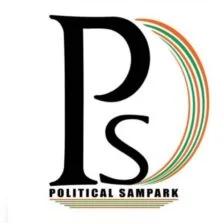Over the past decades, politics has changed drastically distinct than it was in past. There can be numerous reasons for what caused this transition but one that continues to affect politics in the media. Mass media – print and electronic – has played a significant role in society as it is a fundamental source of information for the public.
This role comes with the power to impact public opinion and it also helps to define and take up the problems. It can keep power in an inspection by seeking translucency in its activities.
As you know, the Free press is important to a free society. Let’s dig in further about the role and importance of the media in Indian politics.
The roles and importance of media in Indian politics
Media and politics are the two identical and opposite sides of the same coin and none can prevail without others. With the beginning of the most recent term, ‘Globalization’ the crown of Indian Politics has taken a dramatic transition towards its most recent form.
Media performs as the mover and changer from stereotypical type to the most modern and most updated form of politics. Media plays a very powerful role in politics by moulding the public view towards the Nation as well as parties.
Media is the most influential branch of politics in establishing its audience attitude, viewpoint and behaviour for the betterment and most forthcoming nation.
In a democratic country like India, complexities are starting from societies to Nation like the surge of new events with most contemporary beliefs and with a new and updated form of technologies, media have tremendous power to formulate the real awareness of the world and to affect the behaviour of its residents.
Media Owners With Political Links
The Indian media has changed considerably over the last decades. With the advances in technology, the media industry has been growing like never before and broadened its reach, in terms of the number of outlets, whether in television, radio and newspaper. This has set a remarkable trend for market development, the fundamental consequences of this rapidly growing media terrain have thrown up a few challenges as well. Holding of the media considerably influences the perspectives presented in the reporting and bias becomes unavoidable in such conditions.
After doing various research, ten media owners have direct or indirect connections with politics while some of them even characterize a political party. There are endless others, however, who have declined to declare their political affiliations, but yet own media firms. Between them, media owners with political links regulate a sizable share of viewership.
Conclusion
We all know that media and politics enjoy a symbiotic connection. Speaking, no politicians, how significant they may be, can afford to ignore the media. Yet, only those who are media-savvy and know how to play within the media rules can use them to their benefit, The US President Barack Obama is a good representation of such media-savvy candidates who appreciated the media’s limitations and could wield a mass appeal.
Free media can be considered the bodyguard of the government. A stock of the media behaviour, therefore, is crucial mainly because of the process of agenda-setting and gatekeeping connected with media. Every media learner knows that the media acts as a guard in setting the thresholds for political conversation and sometimes even candidacies for the publicity department. This is a concern in many liberal democracies as this implies only to few individuals have tremendous powers to impact political opinion and destabilise political institutions.
